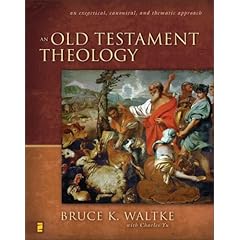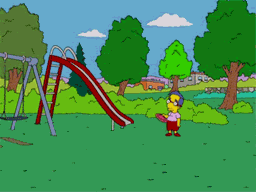I'm often pretty late to the ballgame when it comes to Christian trends. I don't know any of the newest worship music, except for that which is played in church on Sundays. I don't pay much attention to the newest popular preachers- the Matt Chandlers, Mark Driscolls, and so on. It's nothing personal, it's really more a matter of time. There are so many new things- preachers, worship leaders, books, etc- that I don't have time to keep up. I'd rather allow the business to settle down and I'll wade through the carnage and pick out what I want.
So, I say that to explain a bit about why I've just now read the bestselling book by Donald Miller, Blue Like Jaz
z (published 2003). Some of you, most of you, probably, have read this book by now, perhaps multiple times. I've been saying for some time now that I needed to get around to reading it. As I spend more time teaching in my church, the more I realize I need to be up to speed with what folks are reading. So, consider this a late book review, only it's not really a book review.

You see, the thought that kept coming to my mind as I read this was "why was this book such a big deal?" When I finished the book (which didn't take long, it's a very easy read), I found myself asking the same question.
But I mean that in 2 different ways. I wonder why some folks loved this book so much. Hearing from some made me think this book could be the best thing to happen to American Christianity in recent years. After reading it, I can't help but wonder if that is a tremendous overstatement. But, to talk to some other folks, you'd think this is a dangerous book, one that is fraught with awful theology and destined to lead some to heresy. Got to be honest- don't see that either. Not even close.
Let me say it this way: I found 25% of the book annoying, 25% really insightful, 50% just fine. One minor annoyance was his writing style- I wasn't sure if it was cool or childish. For instance, if he were writing about me, he might write something like this:
One of my friends, Danny the Red Sox Fan, is a good guy. He married this girl, Lisa. Lisa is way out of his league. Danny is obsessive about the Red Sox. Danny also has this blog that no one reads. He writes anyway, maybe because he's bored. I like Danny.
Miller is, at points, very insightful. He'll have an interesting way to look at things, especially on loving the broken and downtrodden. And contrary to what you might think from talking to his detractors, he does in fact believe people need to acknowledge their sin and repent. It seems to me that he emphasizes the need to love people before they get "fixed", not just after. I'd consider that a pretty good idea.
To be sure, there are things I don't like. It'd be easy to walk away from this book thinking that only Christians who cuss, don't like Republicans (or churches that do) and call everything "beautiful" are really cool. I'm not saying that was Miller's intention, but I could see how people might walk away from this book thinking that.
Anyway, I'd thought I'd throw out some thoughts on the complaints I've heard over the last couple years and my thoughts on them. First, is the claim he's simply anti-Republican. Yeah, that's pretty much true, and he has a major problem with churches that "toe the party line." I certainly think he's right that there's a problem when so many Christians are blindly Republican. But I personally find the blindly Democrat just as annoying (perhaps even moreso, since they make the same errors they speak against). But hey, it's his book, he can write what he wants.
Second, some say he doesn't have enough of a developed theology. Again, this is true, though there are some "theological" moments in the book- he just goes about them differently (his section on tithing, for example). For instance, Miller is a firm believer that all people have an inherent "sin nature" (his favorite term). He doesn't go about defending it through Scripture or theological reflections on total depravity. He reiterates the need to repent before God, though doesn't show how one goes from being sinful to being repentant (the regeneration/election of the Calvinist system, or the prevenient grace of Wesley). But again, he isn't pretending to be a theologian, and for some who aren't well-versed in Scripture, especially a non-Christian, he might present the idea better than most of us. No, he's not on the level of C S Lewis, but why should we expect him to be?
Third, some argue that he is too hard on the church. Again, I'll agree with this to an extent. I'm a huge believer in the local church. If I were to write a book of this sorts, I'd have tons to say about how much I love my church, warts and all. But Miller isn't anti-church, he's anti-some-churches. I think he's overly critical. If someone already struggles with anger against the church, this book could feed that.
But, I'd also point out two things. One, as critical as he is of others (and he admits as much), he's just as critical of himself throughout the book. Two, he does find himself a church he loves and is challenged by, and he spends a decent amount of time talking about it. I would have preferred he tempered himself a bit more, though. I guess I just think it's too easy to pick on the church, and a bit too trendy for my tastes. I will say, many who pick on churches will end up saying (in attitude as much as in their words) to non-Christians "but hey, we're not like that, we love Jesus and what we're doing is even better than what they're doing." To his credit, I don't think Miller ever goes that far.
Lastly, I found one part amusing, given the successful nature of the book:
Imago, our church, is made up of mostly artists and fruit nuts and none of us have any money, so Rick [his pastor] said if I was going to be a writer, I needed to write a bestseller so that the church could have some money.
In the end, it's what you would expect out of an autobiographical look on the Christian life (not properly an autobiography). At times I wondered how some of it ever got published. At times I was annoyed by his idiosyncratic outlook. At times I found his take on a subject uniquely refreshing. So read it (I'm sure you can borrow it from someone). Enjoy it. But don't believe the hype- either side of it.
 that I'll write a review if I receive a free copy. That was because there was an offer on Between Two Worlds (Justin Taylor's blog) that if anyone would post about the Reader's Hebrew Bible, promise to write a review and e-mail some guy named Chris at Zondervan- and be one of the first 5 people to do all this- you'd get a free copy. I was the 3rd person. So, Chris at Zondervan agreed to send me a free copy for me to review.
that I'll write a review if I receive a free copy. That was because there was an offer on Between Two Worlds (Justin Taylor's blog) that if anyone would post about the Reader's Hebrew Bible, promise to write a review and e-mail some guy named Chris at Zondervan- and be one of the first 5 people to do all this- you'd get a free copy. I was the 3rd person. So, Chris at Zondervan agreed to send me a free copy for me to review. of these. I'll do the RHB first, since that was the original deal, Waltke's book will probably take a little bit longer, but I am looking forward to reading it. The great part is that I now have an excuse to read books, free ones!
of these. I'll do the RHB first, since that was the original deal, Waltke's book will probably take a little bit longer, but I am looking forward to reading it. The great part is that I now have an excuse to read books, free ones!








